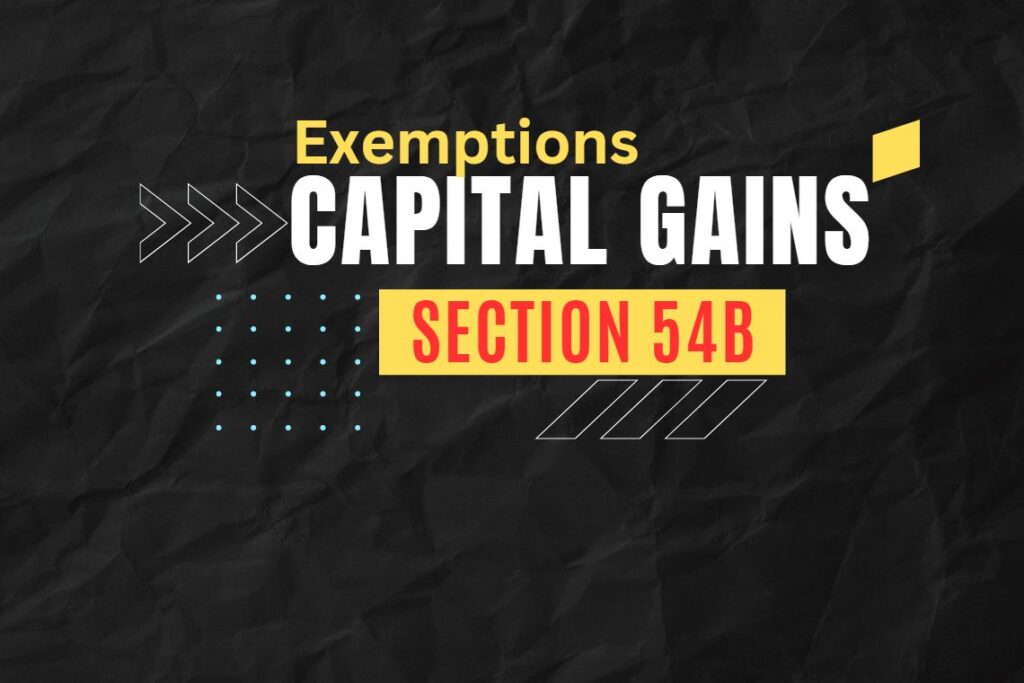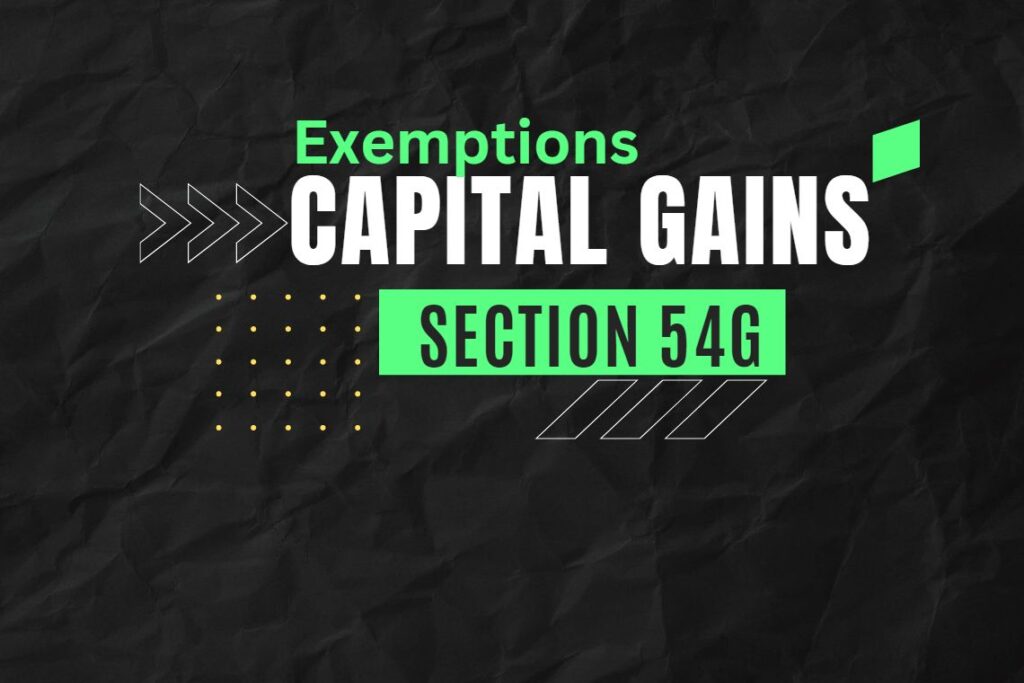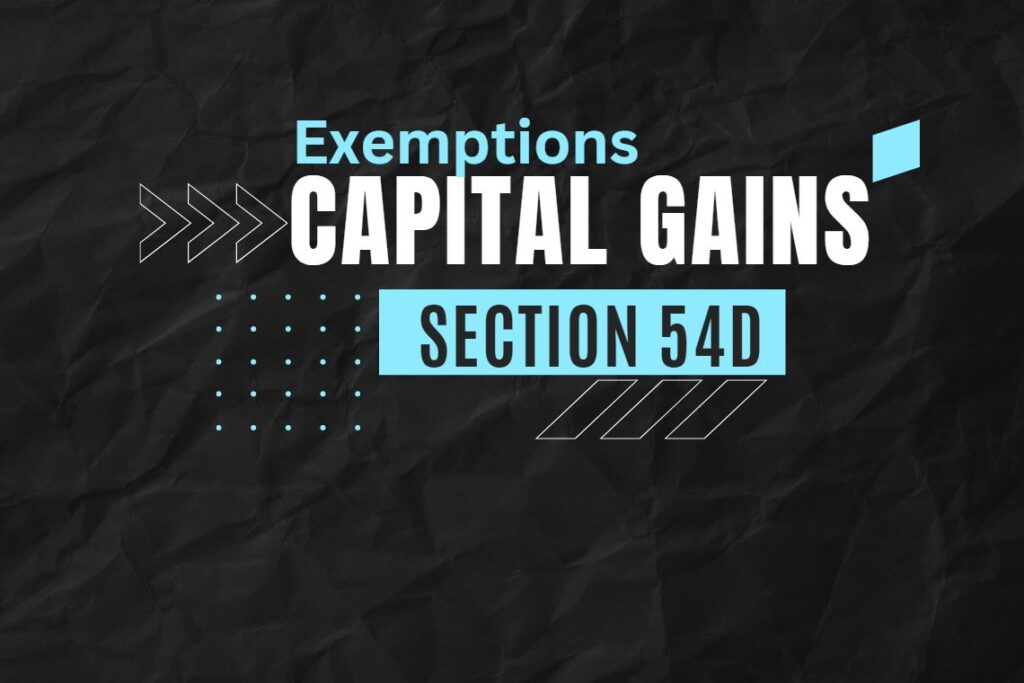Understanding of Section 54B
Agriculture plays a vital role in the economy of many countries, providing food, employment, and contributing to GDP growth. In recognition of the importance of agriculture, governments often introduce policies and incentives to support and promote the sector. In India, one such incentive is the exemption of capital gains on the transfer of land used for agricultural purposes under Section 54B of the Income Tax Act.
Section 54B allows individuals and Hindu Undivided Families (HUFs) to claim exemption from capital gains tax when they sell agricultural land and use the proceeds to purchase another agricultural land within a specified time frame. This exemption is applicable if the land being sold was used for agricultural purposes by the assessee or their parents for at least two years preceding the date of transfer.
The rationale behind this exemption is to encourage the consolidation of agricultural holdings and to ensure that agricultural land remains in the hands of actual cultivators. By providing a tax incentive, the government aims to discourage the sale of agricultural land for non-agricultural purposes, such as real estate development.
It is important to note that the exemption under Section 54B is available only if the entire capital gains from the transfer of the agricultural land are invested in the purchase of another agricultural land. If only a part of the capital gains is reinvested, the exemption will be proportionately reduced.
Furthermore, the new agricultural land must be purchased within a specified time frame to avail the exemption. As per the Income Tax Act, the new land must be purchased within two years from the date of transfer of the original agricultural land. However, if the new land is being acquired through compulsory acquisition by the government, the time limit is extended to three years.
In addition to the exemption under Section 54B, individuals and HUFs can also claim exemption from capital gains tax under Section 54F if the proceeds from the sale of agricultural land are invested in a residential property. The conditions and requirements for this exemption are different from those under Section 54B, and individuals should consult a tax professional or refer to the Income Tax Act for detailed information.
It is important to maintain proper documentation and evidence of the agricultural nature of the land being sold and purchased to claim the exemption under Section 54B. This includes documents such as land records, revenue receipts, and evidence of agricultural activities carried out on the land. Individuals should also ensure that they comply with all other applicable provisions of the Income Tax Act to avoid any penalties or legal issues.
In conclusion, the exemption of capital gains on the transfer of land used for agricultural purposes under Section 54B is a valuable tax incentive provided by the Indian government. It encourages the consolidation of agricultural holdings and helps ensure that agricultural land remains in the hands of actual cultivators. Individuals and HUFs should carefully consider and fulfill all the conditions and requirements to avail this exemption and consult a tax professional if needed.
Conditions to Claim Exemption Under Section 54B
The exemption under Section 54B is available in respect of capital gains arising from transfer of agricultural land, if following conditions are satisfied:
(i) the agricultural land had been transferred by an individual or HUF;
(ii) the agricultural land has been used by the individual or his parents or by HUF for agricultural purposes during the 2 years immediately preceding the date of transfer;
(iii) the assessee had purchased another agricultural land (rural or urban) within a period of 2 years after the date of transfer of the original agricultural land to be used for agricultural purpose.
| 1. Transfer of agricultural land can be after or before 2 years of acquisition, but it must be used by the assessee or his parents or HUF for a period of at least 2 years immediately preceding the date of transfer, for agricultural purposes.
2. It may be noted that capital gain on the compulsory acquisition of urban agricultural land is exempt if conditions mentioned under section 10(37) are satisfied. |
Quantum of Deduction
- If the amount of capital gain is equal to or less than the cost of the new agricultural land, the entire capital gain shall be exempt.
- If the amount of capital gain is greater than the cost of the new agricultural land, the cost of the new agricultural land shall be allowed as an exemption.
ln other words, capital gain will be exempt to the extent it is invested for acquiring the new agricultural land.
Key Points related to Section 54B
Under Section 54B of the Income Tax Act in India, individuals can claim an exemption from capital gains tax when they sell agricultural land and use the proceeds to purchase other agricultural land.
Here are the key details related to this provision:
1. Eligibility:
To be eligible for the exemption under Section 54B, the following conditions must be met:
- The capital asset being transferred should be agricultural land.
- The land should have been used by the taxpayer or their parents for agricultural purposes for at least two years immediately preceding the date of transfer.
2. Utilization of Sale Proceeds:
The exemption is available if the sale proceeds from the agricultural land are used to purchase another agricultural land. The purchase of the new agricultural land must be made within a specific time frame.
3. Time Limit for Reinvestment:
The taxpayer is required to invest in the new agricultural land either one year before the date of transfer or within two years from the date of transfer of the original agricultural land. Alternatively, they can also construct a residential house on the new agricultural land within three years from the date of transfer.
4. Exemption Amount:
The exemption under Section 54B is limited to the amount of capital gains arising from the transfer of the original agricultural land. In other words, the entire capital gains amount is eligible for exemption if it is reinvested in the specified assets.
5. Tax Implications:
If the entire amount of capital gains is not reinvested in the specified assets within the prescribed time frame, the unutilized portion of the capital gains will be taxable in the year of transfer.
6. Conditions for Continuance of Exemption:
The new agricultural land purchased must be used for agricultural purposes. If the new land is transferred or converted for non-agricultural use within a period of eight years from the date of its acquisition, the exemption granted under Section 54B will be revoked, and the capital gains tax will become payable.
Scheme of deposit in Capital Gains Accounts Scheme, 1988
The scheme of deposit is applicable, in this case also. In other words, the assessee should either purchase the agricultural land and/or deposit the amount under the Capital Gains Accounts Scheme on or before the due date of furnishing the return of income. The amount so spent/deposited, by the due date of furnishing the return, shall be treated as if it were used for the said purpose.
The proof of such a deposit shall be attached with the return. In this case, the amount already utilised by the assessee for the purchase of the agricultural land, along with the amount so deposited, shall be deemed to be the cost of the agricultural land and shall be eligible for exemption.
Consequences where the Amount Deposited in the Capital Gains Accounts Scheme is not utilised for the purchase of the Agricultural Land within the Specified Period:
In this case, the amount not so utilised shall be charged as capital gains (short-term/long-term depending upon the original transfer) of the previous year in which the period of 2 years from the date of transfer of the original asset expires. In this case, the assessee shall be eligible to withdraw the amount from the scheme.
Consequences where the New Agricultural Land is Transferred within a period of 3 years of its Purchase:
In this case, the capital gain which was exempt earlier uJs 54B shall be reduced from the cost of the new agricultural land for the purpose of computation of capital gain in respect of the new agricultural land. Such capital gain will be:
(i) short-term capital gain if the new agricultural land is transferred within 2 years.
(ii) long-term capital gain if the new agricultural land is transferred after 2 years but before 3 years from the date of its acquisition. Benefit of indexation of the net cost of acquisition (i.e., cost of acquisition — capital gain exempt under section 54B earlier) will also be allowed.
Further, the assessee can again claim the exemption under section 54B, if all other conditions are satisfied.











